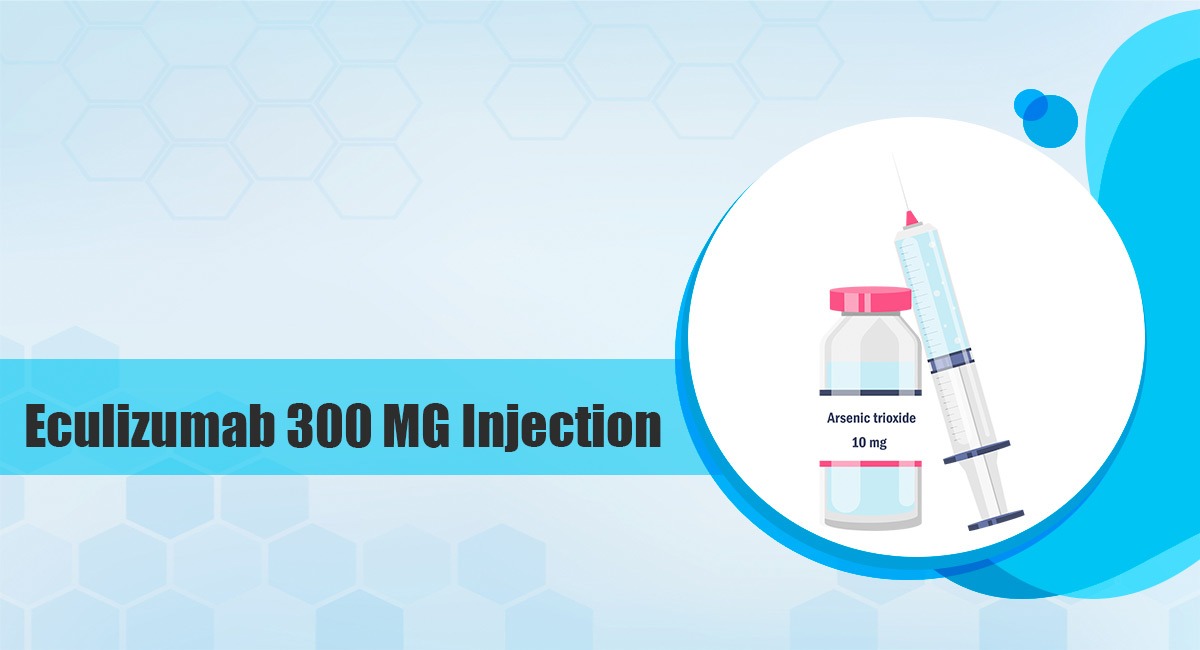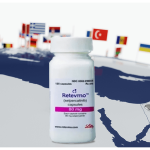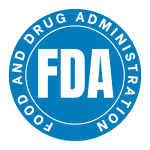Eculizumab (Brand Name: Soliris) 300 mg is a monoclonal antibody that binds to complement protein C5 and blocks terminal complement activation. The eculizumab injection is approved to treat patients with paroxysmal nocturnal hemoglobinuria, atypical hemolytic uremic syndrome and some forms of generalized myasthenia gravis and neuromyelitis optica spectrum disorder. In patients taking treatment with this medicine, some Warnings and Precautions are recommended which should be kept in mind. These are as follows:
Severe Meningococcal Infections
Administration of eculizumab 300 mg injection typically increases a patient’s susceptibility to severe meningococcal infections (septicemia and/or meningitis). All patients without a previous history of meningococcal vaccination must receive the meningococcal vaccine at least 14 days prior to receiving the first eculizumab dose and be revaccinated as per the current medical guidelines for vaccine use. Quadrivalent, conjugate meningococcal vaccines are strongly recommended. Meningococcal infections may not be prevented by vaccination.
Patients need to be assessed for early signs/symptoms of meningococcal infections and evaluated promptly if an infection is suspected. Health specialists should strongly consider interruption of eculizumab during the treatment of severe meningococcal infections.
In clinical studies, 2 out of 196 PNH patients developed severe meningococcal infections while getting treatment with eculizumab; both had been vaccinated.
Other Infections
Eculizumab blocks the terminal complement; therefore patients may have higher susceptibility to infections, mainly with encapsulated bacteria. Caution should be used when administering this medicinal product to all those patients who are with any systemic infection.
Monitoring After Eculizumab Discontinuation
Since Eculizumab (Soliris) 300 mg therapy increases the number of PNH cells, patients who discontinue treatment with soliris 300 mg may be at higher risk to have serious hemolysis. Serious hemolysis is recognised by serum LDH levels higher than the pre-treatment level, along with any of the following: higher than 25% absolute decrease in PNH clone size (in the absence of dilution because of the transfusion) in 7 days or less; a hemoglobin level of <5 gm/dL or a reduction of >4 gm/dL in 7 days or less; angina; change in mental status; a 50 percent increase in the level of serum creatinine; or thrombosis. Evaluate any patient who discontinues Eculizumab for at least 8 weeks in order to detect serious hemolysis and certain other reactions.
In case serious hemolysis occurs following discontinuation of Eculizumab, consider the following procedures or treatments: blood transfusion (packed Red Blood Cells), or exchange transfusion if the PNH Red Blood Cells are >50 percent of the total Red Blood Cells by flow cytometry; corticosteroids; anticoagulation; or reinstitution of Eculizumab.
In clinical studies, 16 of 196 PNH patients discontinued Eculizumab treatment. Patients were followed for findings of worsening hemolysis and no severe hemolysis was observed.
Thrombosis Prevention and Management
The effect of withdrawal of anticoagulant therapy during Eculizumab (soliris 300 mg injection) treatment has not been established. Therefore, treatment with Eculizumab should not alter the anticoagulant management.
Laboratory Monitoring
The serum LDH quantity increases during hemolysis and may assist in monitoring the effects of Eculizumab, including the response to interruption of therapy. In clinical studies, 6 patients achieved a decrease in serum LDH quantity only after a decrease in the Eculizumab dosing interval from 14-12 days. All other patients achieved a decrease in serum LDH quantity with the 2 weeks dosing interval.
Infusion Reactions
As with all existing protein products, administration of Eculizumab may result in some infusion reactions, including anaphylaxis or other hypersensitivity reactions. In clinical trials, no PNH patients experienced an infusion reaction which required discontinuation of Eculizumab. The administration of Eculizumab should be interrupted in all patients experiencing severe infusion reactions and apt medical therapy administered.






